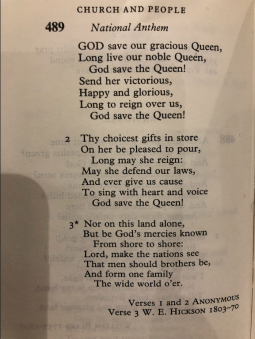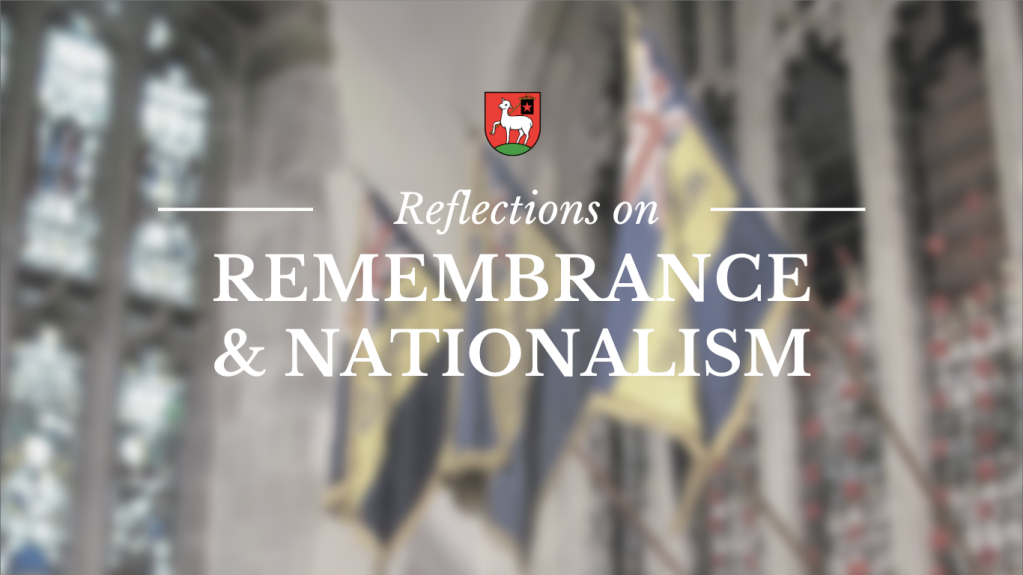Today I went to a Remembrance service at a war memorial followed by one at a church. At both, the national anthem was sung, and other nationalistic sentiments were expressed in word and song. It goes without saying that Remembrance is an incredibly important and significant time for many people and for the society we live in, so it is essential to be sensitive. Many people who attend Remembrance services will know people who have been killed or otherwise affected by war, and many will be current or former soldiers themselves. Obviously, these people should be made to feel welcome at church, especially at this time.

This, though, can cause something of a culture clash. Some, myself included, are of the opinion that flags, national anthems and other nationalistic elements do not belong in church because they defame the name and gospel of Jesus Christ. In short, neither nationalism, nor the Kingdom of God are ideologically neutral. What they are is mutually exclusive, competing ideologies.
The Church that formed around the message of Jesus was profoundly anti-imperial and pacifist for the first three hundred years of its existence. This should not be surprising given that Jesus was executed by the state as a political dissident. This is why, in the earliest days of the Church, soldiers and civil magistrates (who could sentence people to death) were not admitted to baptism and could not receive Holy Communion. None of what I’m saying here is conjecture – these things are a matter of historical record.
Today was actually the first time in eight years that I have been to a service of remembrance. Before I last went, back in 2011, I raised concerns that there would be nationalistic and militaristic overtures at the service. I was particularly concerned that the national anthem might be sung – something that has always seemed especially egregious to me given that it is the anthem of a state and monarchy that was quite willing to send millions of young men to the pointless slaughter of the First World War. At the time, I played percussion in the church band, so it was particularly important to me that I did not feel compelled into disseminating a message with which I so strongly disagreed. Unfortunately, despite being assured it would not be the case, both the British and French anthems were sung (there were French visitors) and this became the proverbial straw that broke the camel’s back.
Taking the decision to attend a Remembrance service once again, then, was not something I took lightly, and I decided to ask beforehand whether the national anthem would be sung and whether there were other nationalistic or militaristic elements to the service. Again, I was assured that there would not be, and again, this turned out not to be true.
Obviously there is a problem here. It seems there is some kind of collective unconsciousness about the nature and existence of nationalism. In a country still very much struggling to come to terms with its colonial past, its neo-colonial present, and its changing demographics, this cannot be a good thing. The church claims to be there to minister to all in the community, but how can it do that if it effectively excludes and misleads groups such as republicans, anarchists, pacifists and even BAME people? Still more, how can it do that if it fails to even recognise that this is happening? A church so thoroughly interwoven with the state not only has some difficult questions to ask itself about those to whom it ministers, but about the very nature of its existence. Is it there to usher in the liberatory Kingdom of God on Earth, or is it there to celebrate and uphold earthly kingdoms? The two are fundamentally juxtaposed.




Leave a comment